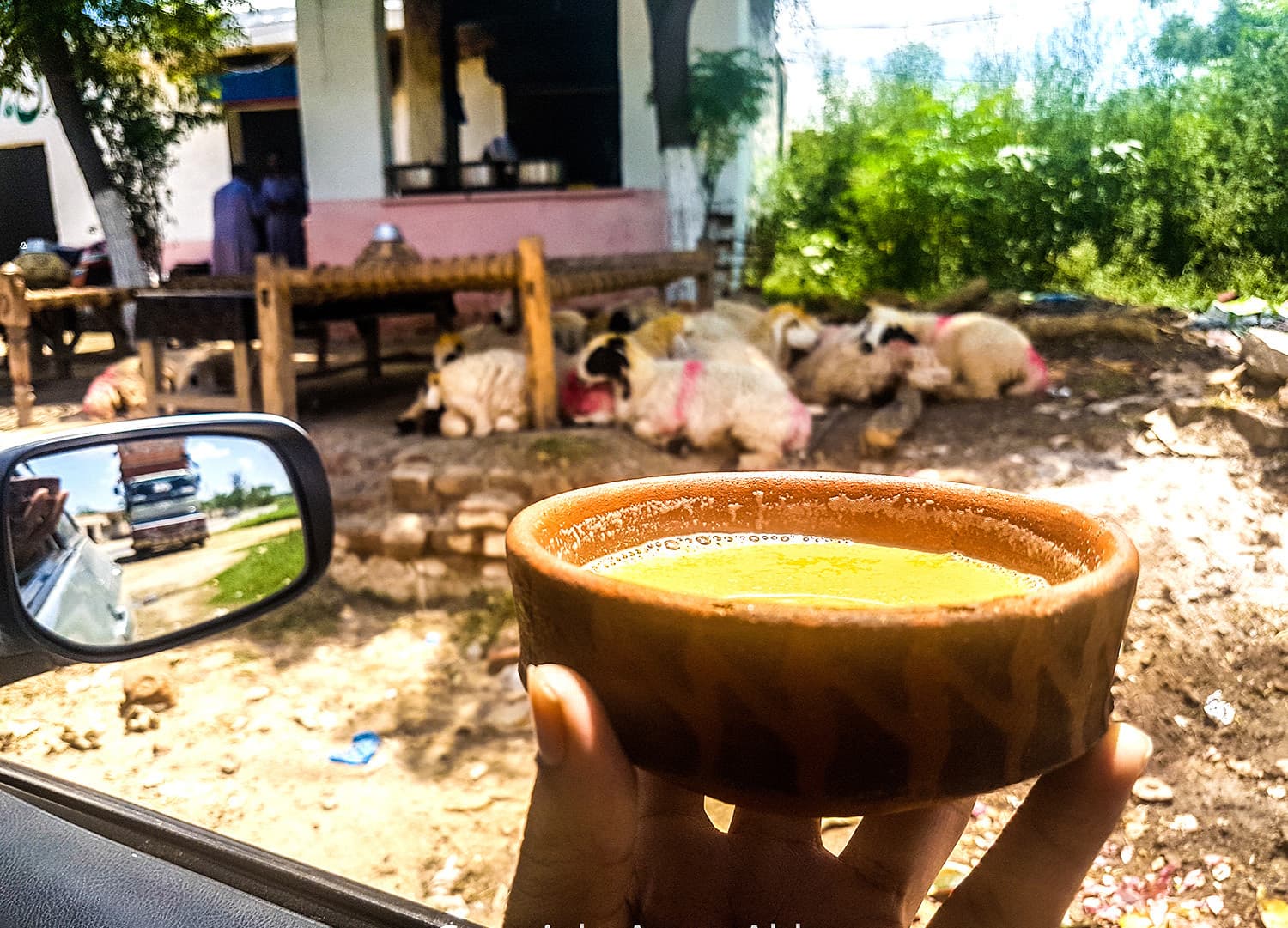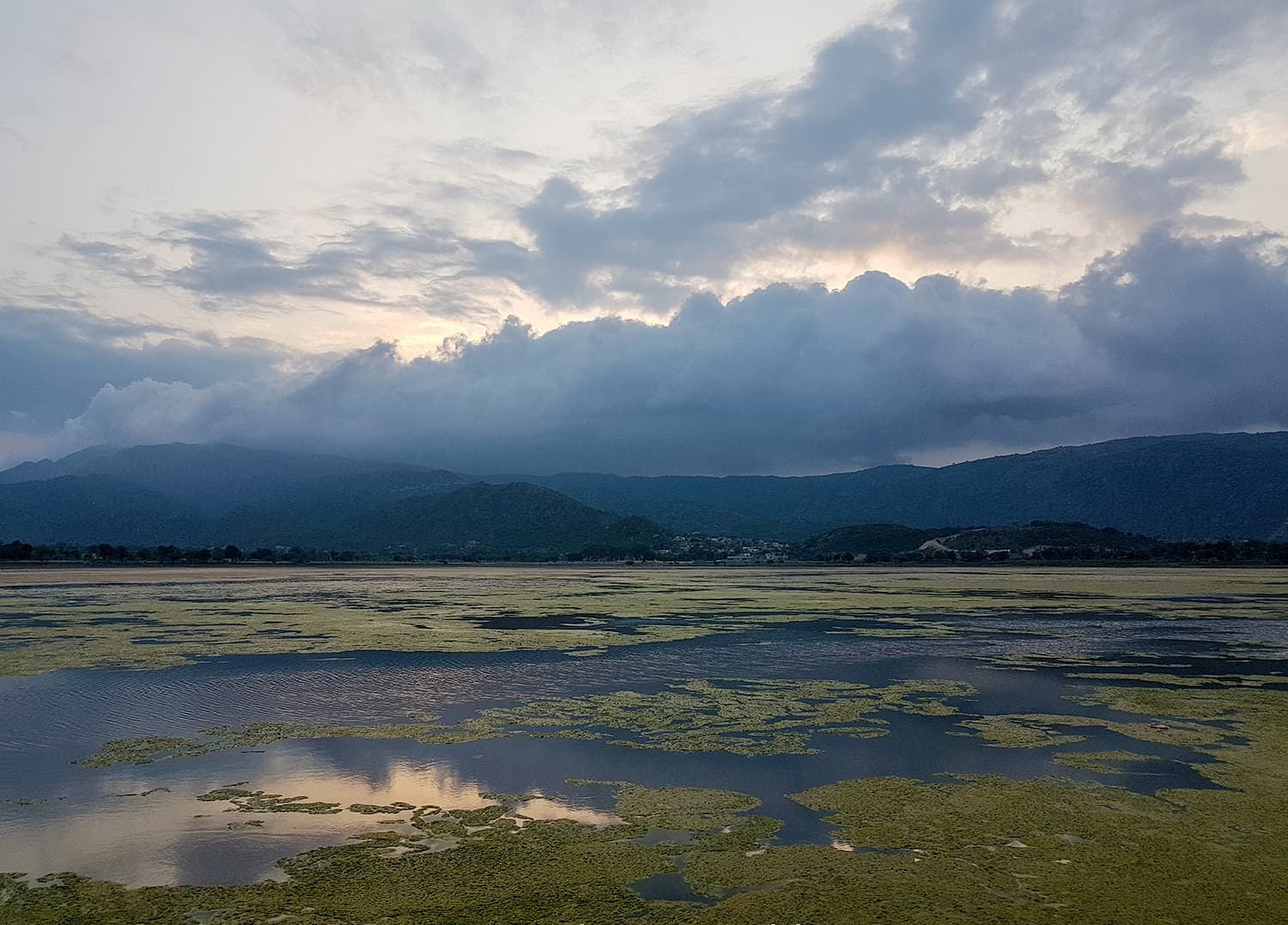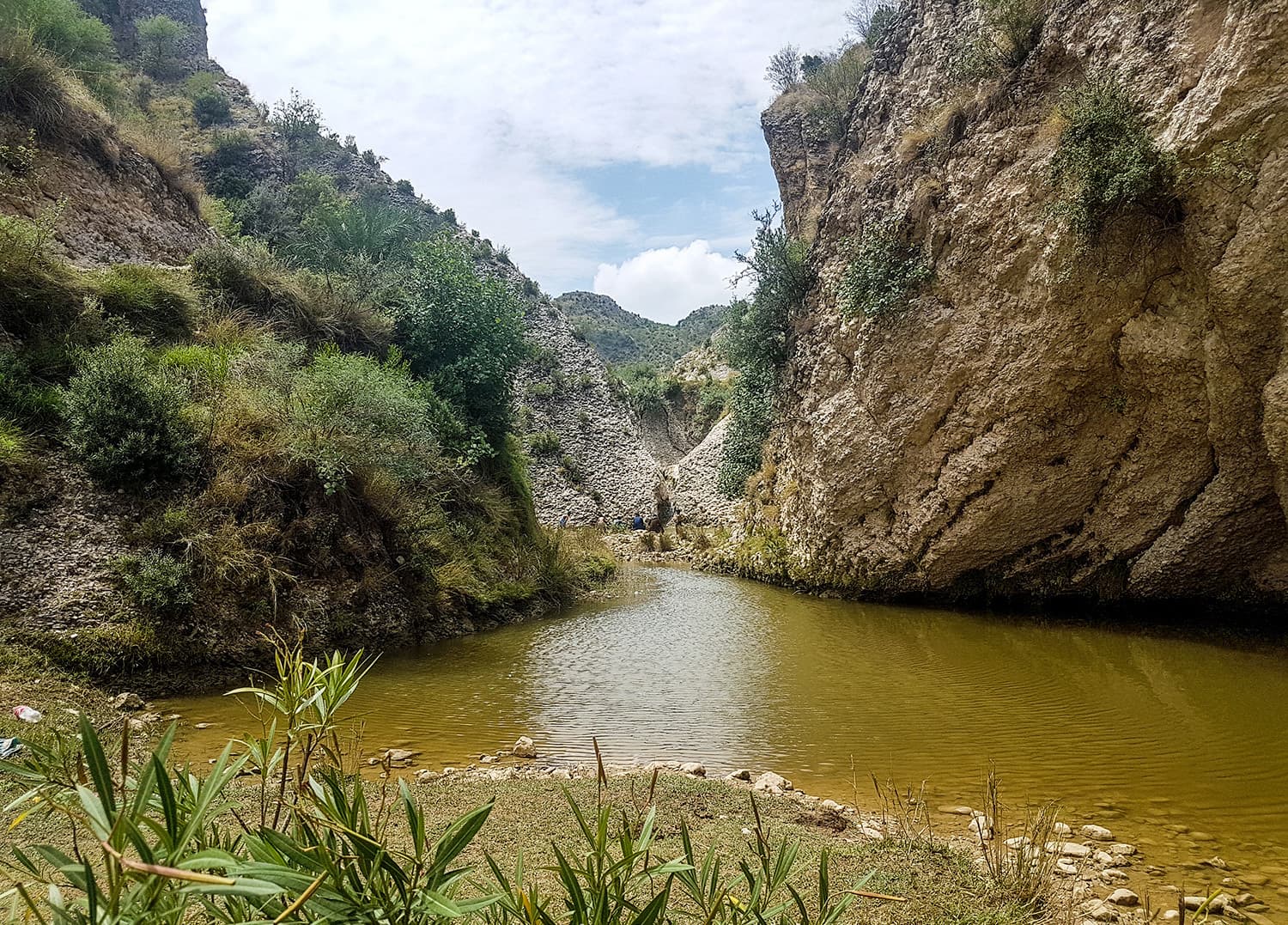A road trip with my mother where women 'cannot go alone'
This life that I live today and take for granted isn’t the life I always had. There is a freedom now, to my hours and my days, and this freedom has been a slow unravelling – a ball of twine I have steadily pushed along as I turned this way and that on life’s winding roads.
We are fighters, us free women. We recognise the soldiers in each other when we encounter one another in the urban mazes we occupy. We fight to keep that ball of twine rolling, extending our hands to those climbing steeper hills.
We forget our mothers. Within pools of trauma and memories far too complex to tell with a single emotion. We are so busy fighting, we leave them in the dust of our ferocious footsteps. Where is she on this hill? Whose hand is she holding?
On Eid break, this June, my mother and I embarked on our first-ever road trip together. Just us, mother and daughter. I asked her to pick a place, and she picked Soon Valley. She had always wanted to go there.
She arranged the guesthouse bookings and I was tasked with driving. She also prepared omelette sandwiches, pressed together by a sandwich maker so they would keep together during the bumpy ride – something I would never have thought of.
I put together a playlist, only to find her car stereo had no auxiliary cable input. As consolation, we stopped at Dhaka Sweets and got some mithai. YES. I also insisted that she make up for the lack of music by singing to me.

She reminded me of that one time, seven years ago, when we were alone on a beach, with the wind howling across the sandy expanse, the sun dipping just behind the sea, and not a soul in sight.
She was too afraid of the water to swim, and instead let her wet dupatta flutter in the wind, singing hawa mein urta jaye...mera lal dupatta mal mal ka.. oh ji oh ji....
It was pouring as we left Rawalpindi and got on to the motorway. The weather was unimaginably exciting for me after having lived a year in Karachi.
I had left my mother to go to Karachi, you see, and had come home for Eid. We hadn’t seen each other for three months. As I drove, she sang to me.
We arrived at the mountains of Sakesar, where we would be staying. My mother was born and raised in the mountains, actually. She was in her element.
When do women change? She had been an only child who grew up climbing trees. When did her body learn to close in on itself? When did the hesitation set in?
To look at a tree and not search for footholds but instead to cross one's legs and sit in its gentle shade - a flower, not a conqueror. When did the sting of skin scrapes get replaced by the sting of unwelcome lustful stares?

We had one day to explore the valley. I had found a blog listing all the must-see spots: waterfalls, lakes, lagoons, and old ruins, some with murky histories. We had Google-Mapped our way there and I was planning out the next day as well, but my mother wasn't as confident.
We asked one of the caretakers of our guesthouse for advice. He shook his head at our plans. "Why do you want to see these ruins? No, this road is terrible. No, you can’t go there, it’s too far.” And so on. I grew grumpy, but my mother kept nodding at him and shooting glances at me. Relax and play along!, her eyes seemed to say glaringly.
I wanted to visit a couple of spots that evening. The manager insisted on accompanying us. He barely took us on a walk around the compound grounds and called it a day. “Why don’t you stroll through our mini zoo?” he asked. I rolled my eyes.
We tried to rid ourselves of him, but he would not budge. Just over the horizon, 30 minutes away, rested the ruins of a fort that I was aching to see. And when we finally tried to go there, he made it firm and clear that there was no way he was going to let two women drive there at 5 pm.
I couldn’t understand this – sunset was a good two hours away. I was livid, but my mother felt obliged. Instead, we went to Uchali Lake.

Uchali Lake was teeming with males. Some women were there with their families but mostly the narrow walkway to the lakefront was heaving with boys and men, all of them enjoying their Eid vacation, leering at any and all women who walked by. The water was littered with garbage, and the half-hour boat ride across the width of it was a rip-off.
We left quickly. I marched through the crowd and kept my gaze up and forward, hoping to avoid looking any of the men in the eyes. My mother complained to our 'male chaperone' about the lecherous stares.
The manager stayed mute. He said nothing to us, and nothing to the other men. And so we continued marching through the violent and lustful gazes that bore down on us.
My mother learnt young what I learnt young – men don’t protect you.

The next morning we slipped out early in the hope that no one would intrude into our vacation. Google Maps FTW I convinced my mother. We downed the still-sustaining omelette sandwiches and were on our way.
Our first destination was a chashma at Daep Sharif. We muscled through a strip of broken uphill road, to where the pin on the map led us. There, we entered a gate to a compound with Pajeros parked on one end and an old style verandah filled with men on charpais on the other.
My mother took one look at the scenario and wanted to bail. Even before the men looked at us with those unfriendly, dismissive eyes, their show of pomp and power was enough to make my mother – who has seen in her lifetime more manifestations of violent men than I – know we were unsafe.
Nonetheless, I approached them and asked for directions to the chashma, learning in the process that they were the caretakers of whatever wealth the holiness of that chashma brought in.
The youngest of the lot pointed in the general direction, scowling at us two un-manned women, driving alone and entering their domain.
We parked outside the gates, still feeling unwelcome.
"What if they slash our tyres", mother asked me.
"Why would they?"
"They didn’t like us."
"It’s okay... let’s find that chashma."

We trotted down a narrow walkway that descended into a field of hillocks. There was no way of knowing what direction to go in, and no cell phone signals anymore.
My mother cocked her ears for the sound of water, and she did hear something, but she also wondered if it were just the rustle of leaves instead.
Halfway, she wanted to turn back. "There is no one here."
I was desperate to find the holy water. "Let me try around the corner."
The sound of water came into our ears clearly now. I climbed down, hesitantly.
Then, there it was, filled already with ten men.
Well…that was disappointing. There would be no swimming for us now.
It was only 10:30 in the morning. There was an uncomfortable silence and ten sets of stares as we approached and greeted the men. Only one returned the greeting.
A polite man in his 40's was surrounded by his excited sons who splashed around in the water. My mother asked him about the significance of the place and he began explaining.
I overheard him say the source of the water was somewhere above, and that there was a path leading up to it — a hazardous climb that even men couldn’t handle. I scoffed and began climbing. It turned out to be quite a short and easy climb.
Waiting at the top was a well of water that sunk into the mountainside, a patchwork of rusty graffiti, and a view below of all those who hadn’t imagined I could make that climb – except my mother, of course.
I waved down to her tiny, blue form.

On the way back, I urged my mother to sip water that sprung from below the solitary fig tree, said to cure diabetes. As we walked back, my mother told me the man had asked if I were an athlete. I laughed.
But then, we are so used to women who have become limp and lethargic. My mother apparently enjoyed presenting the freak that was her daughter to this audience of strange men.
She was a proud mother to an ungainly and overgrown girl child who had left mouths hanging open, with her gait and with her unbending neck.
She felt especially proud when we drove on the perfectly-drawn roads of Punjab, flanked by gobi fields, and found children, men, and women tugging at each other's shirt sleeves so they wouldn’t miss the sight of two women driving a car across the known world – windows down, waving back at them.
On the trail back to the car, my mother pointed to a shallow stream. There's no one around, swim here.
I rolled my eyes. It was a tadpole tub, but I swam anyway.

We had lunch at Khabaki Lake, where my mother cooled a bunch of mangoes in the water for us to enjoy. I pretended to be rich and pointed out patches of land across the water where we could build all-women communes and raise sheep and swim under the full moon at night.
"You're not practical," she said. "Where will you get help if something happens?"
Always the looming threat of other people.
Our next stop was Kanhatti Gardens, which took a long and winding journey up and then down a mountain, whereas Google Maps only lead me halfway. This time, my mother encouraged us to keep going.
Kanhatti Gardens was full of families on vacation. There was another chashma there, but this time popular enough to be littered and populous enough that I briefly thought I had lost my mother. I bought olive tea and we walked through various tea stands and fruit gardens.
We left shortly after, exhausted by the heat and the people, and the handful of wrong turns to the promised chashma, partly due to one chai wala who was trying to swerve us away from his competition.
But, satiated by fresh pakoras and chai, my mother gleefully volunteered to ride pillion with a young man on a motorcycle all the way to parking while I followed closely behind.


There was one more spot left in our day's itinerary. It was near Asr time and we found ourselves lost on the way to Nur Singh Phowar. Google Maps was at fault, once again.
We stopped and asked for directions, but everyone was incredulous, not understanding where we wanted to go. I learnt a new word: khandaraat — “hum khandaraat dhoondh rahay hein!"
An old villager squatting on the side of the road finally understood: "Turn back, you missed the turn".
We had in fact missed the dirt road. It was on foot from there on a rough, pebbled track. My mother needed her time. She told me to walk ahead and find it, that I should not slow down because of her.
Walk ahead, leave me to my pace: we are women who carry burdens, not those who hand them out.
Just a little further I could see Nur Singh Phowar, the ruins of some maharaja’s cliffside retreat.

It was nestled halfway down a cliff, with a raging river crossing the valley further below it. There was no sound except that of birds. We were now in another domain.
My mother finally caught up to me. Apparently she’d been calling out to me but I hadn’t heard. I pointed down to the vertigo-inducing, leafy abyss. My mother balked at how close to the edge I was.
The drop was so sudden, even the trees were growing out horizontally, as if locked in a perpetual barzakh – sustained by the eternal water of mountain springs, yet hanging over the cliffside, death guaranteed by the rushing force of the same water colliding below.
In order to get to the ruins, we retraced our steps and found the downward-spiralling trail.

We began slowly, feeling lonelier and lonelier as we climbed down the side of the mountain. I looked back. I wondered how my mother was going to make it back up. I expressed this concern.
My mother took this opportunity to berate me: "You make unwise decisions, Anam". "Yahan na banda hai na banday ki zaat".
While I feared for my mother's aging bones, she feared strange men more.
The fear in her stomach uncoiled and reached into mine. I tried to laugh it off as I kept telling her we could bail anytime. The panic began to set in, and the sky grew darker as we kept walking down.
Just when I was about to call it a day, I chanced upon low walls of stone upon stone. Someone had fashioned a new entrance, but the inside was unkempt, with graffiti marking the mandir.
I marvelled at the ancient trees and the still-blue pool that formed out of the chashma which flowed from inside the great rocks. All was quiet but the roaring of the water in the valley below.

My mother gave me ten minutes to look around. I know we both could have stayed here for hours. Instead, we exited quickly, my mother sitting down to catch her breath every five minutes, me trying to be cheerful, both of us now measuring her age.
Take another break. Breathe through your nose. How is your pulse?
Step by step we walked back to our car, past the cliff yonder that looked like a woman, past the tree bark where my mother found herself a walking stick, muttering about wild animals. What I wouldn't give to face a wild mountain cat, I joked. My mother was red in this face, not amused.
When we made it to our car, its tyres were intact and there was still light in the sky remaining.

"We are getting a gun," my mother said.
"A gun?"
"Yes, a gun."
"You don’t make wise decisions."
"You are the one who found the path; you wanted to climb down...we need a gun."
"Okay, let’s get a gun."
"No, we can’t. They aren't legal anymore."
"Okay...let’s get a taser."
"What’s a taser?"
I explain.
"Okay...yes…that’s good."
She sat and massaged her sore feet before we set off again, over Punjab's wealthy roads, past khushhaal farmers and a herd of camels hilariously stumbling down hills, past the congested traffic, past the lakes, and back to our beds.
I was going to leave again three days after our return home. She said she wished she had friends who would go on adventures with her. My heart broke. I told her about adventure clubs. Her eyes sparkled.



Have you been to places that are conventionally off-limits for you ? Tell us about your adventures at blog@dawn.com






